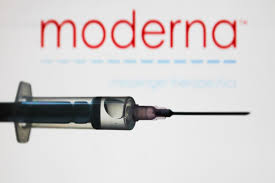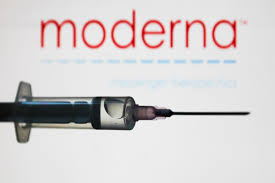
With two drug makers announcing very positive results based on interim data from their stage last stage trials for a Covid-19 vaccine, the hopes for the world to get a vaccine to fight the disease has been raised significantly.
Very positive results so far for their third and final phase trials of their vaccine candidates were announced within a span of a week by drug makers Pfizer and Moderna. However analysts are concerned about the extremely low temperature, more than -70 degree Celsius, required for storage and during transportation for the Pfizer vaccine.
However, according to experts such as Matthew Hepburn, head of vaccines for the U.S. Operation Warp Speed program, the Covid-19 vaccine from Moderna Inc will be relatively easy to distribute and transport – particularly in the rural areas, as it can be stores at standard refrigerator temperatures for up to a period one month.
These comments from Hepburn's came after the company released analysts and results of interim data from its late stage clinical trial that has revealed that the experimental vaccine is able to stop Covid-19 infections by about 94/5 per cent after administration.
Hepburn said during a press call that Moderna's vaccine "enables a much more distributed model for us to get the vaccine out there, for example, in very rural areas and to be able to make that distribution process happen as conveniently as possible for those Americans that need vaccine".
Storing of its vaccine at standard refrigerator temperatures of 2 to 8 degrees Celsius (36 to 48°F) will be possible and the vaccine will remain safe and applicable for a period of 30 days compared to a previous projection of a seven day period for safe storage, Moderna said in a statement.
In contrast, the vaccine under development by Pfizer Inc has to be shipped and stored at ultra cold temperatures or on dry ice. Under standard refrigerator temperatures, the vaccine can last only for up to five days, the company has said.
"The stability testing for (Moderna's) vaccine is an ongoing process," Hepburn said. "Now, we could be cautiously optimistic that it may prove to be even more stable once those longer-term tests are completed."
A more than 90 per cent efficacy of the vaccine that Pfizer has developed in partnership with German partner BioNTech SE was announced last week based on the initial data of lats phase human trials of the vaccine.
A new technology called synthetic messenger RNA that helps to activate the human immune system to fight against the virus has been used by both Pfizer and Moderna for developing their vaccines. Experts have raised concerns about the distribution challenges associated with Pfizer's vaccine due to its specialized storage requirements.
"Now that we know that there could potentially be two vaccines, (we are) working through lots of different scenarios in terms of who gets what vaccine when. Part of this will also be based on the distribution characteristics," Hepburn said.
(Source:www.usnews.com)
Very positive results so far for their third and final phase trials of their vaccine candidates were announced within a span of a week by drug makers Pfizer and Moderna. However analysts are concerned about the extremely low temperature, more than -70 degree Celsius, required for storage and during transportation for the Pfizer vaccine.
However, according to experts such as Matthew Hepburn, head of vaccines for the U.S. Operation Warp Speed program, the Covid-19 vaccine from Moderna Inc will be relatively easy to distribute and transport – particularly in the rural areas, as it can be stores at standard refrigerator temperatures for up to a period one month.
These comments from Hepburn's came after the company released analysts and results of interim data from its late stage clinical trial that has revealed that the experimental vaccine is able to stop Covid-19 infections by about 94/5 per cent after administration.
Hepburn said during a press call that Moderna's vaccine "enables a much more distributed model for us to get the vaccine out there, for example, in very rural areas and to be able to make that distribution process happen as conveniently as possible for those Americans that need vaccine".
Storing of its vaccine at standard refrigerator temperatures of 2 to 8 degrees Celsius (36 to 48°F) will be possible and the vaccine will remain safe and applicable for a period of 30 days compared to a previous projection of a seven day period for safe storage, Moderna said in a statement.
In contrast, the vaccine under development by Pfizer Inc has to be shipped and stored at ultra cold temperatures or on dry ice. Under standard refrigerator temperatures, the vaccine can last only for up to five days, the company has said.
"The stability testing for (Moderna's) vaccine is an ongoing process," Hepburn said. "Now, we could be cautiously optimistic that it may prove to be even more stable once those longer-term tests are completed."
A more than 90 per cent efficacy of the vaccine that Pfizer has developed in partnership with German partner BioNTech SE was announced last week based on the initial data of lats phase human trials of the vaccine.
A new technology called synthetic messenger RNA that helps to activate the human immune system to fight against the virus has been used by both Pfizer and Moderna for developing their vaccines. Experts have raised concerns about the distribution challenges associated with Pfizer's vaccine due to its specialized storage requirements.
"Now that we know that there could potentially be two vaccines, (we are) working through lots of different scenarios in terms of who gets what vaccine when. Part of this will also be based on the distribution characteristics," Hepburn said.
(Source:www.usnews.com)





